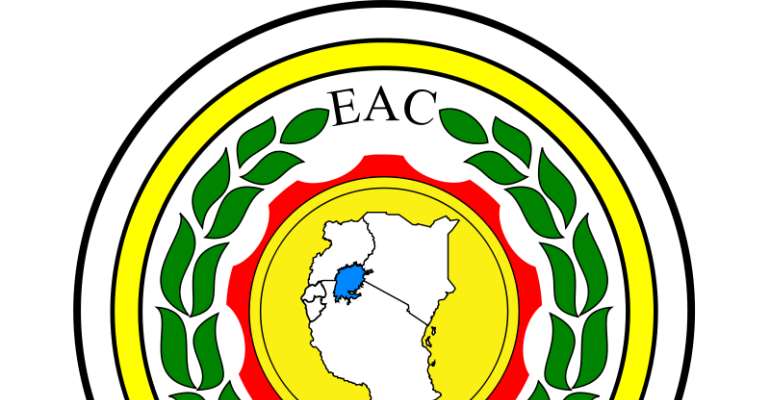EAC seeks more say for women in political integration agenda as third regional dialogue on political integration opens in Kigali

ARUSHA, Tanzania, June 3, 2013/African Press Organization (APO)/ -- Women leaders from the EAC holding national, regional and international offices as well as selected male political leaders are in Kigali attending the 3rd EAC Dialogue on Political Integration.
The two-day dialogue on the theme: EAC Women Leaders as Drivers of the Political Integration Agenda is convened to address the question whether women leaders fit the description as drivers of the EAC political integration agenda - if so how and if not, why?
In his welcoming remarks, EAC Deputy Secretary General in charge of Political Federation, Dr Julius Rotich acknowledged the meeting being a significant moment: “I see more women than men for the first time”. He noted that this was a deliberate effort to rethink the drivers of the EAC integration agenda and why inclusiveness should be paramount.
Dr Rotich acknowledged that the challenges of promoting women's participation in political leadership are many. “There is the issue of increasing their participation, enhancing their status in the process and introducing a gender perspective into the content in order to reflect the changing political dynamics,” he observed.
In her welcoming remarks, EAC Deputy Secretary General in charge of Productive and Social Sectors, Hon. Jesca Eriyo noted that it is in the desire to enhance dialogue that the EAC developed the EAC Consultative Dialogue Framework for private sector, civil society and other interest groups in 2012.
“This mechanism provides for an institutionalized dialogue for all stakeholders, including Political Leaders, men and women, to give their contribution to the integration agenda,” Hon. Eriyo noted.
“This Dialogue has been especially designed for women leaders and the role they can play in political integration,” she added.
The dialogue is anchored on the understanding that Africa requires sustained investment in leadership and good governance. Despite the growing numbers of women being elected to political office, women remain under-represented. Where women are elected in bigger numbers to positions of power and decision-making does not necessarily mean that they are participating in conditions of equity. For instance, political parties hardly elect women to critical positions in their leadership ranks.
However, where they do, their participation and influence may be undermined through marginalization or critical decisions being taken outside the main formal party decision making structures. On the other hand there are on-going political related conflicts as well as economic instability. This stresses the need for more women to step in, alongside men and find strategic solutions to various challenges facing the continent and the region in particular.
In her keynote address, Hon. Monique Mukaruliza, Minister in charge of EAC Affairs Rwanda, noted that women participation and leadership roles in governance is imperative to good governance to ensure democratic representation and participation of communities in legislative and policy making processes; representative articulation of needs and demands towards human development and contribution to government effectiveness and accountability.
“Taking into account that most conflicts in the eastern African region that continue to impede development are governance related; we noted that one of key ingredients for sustainable peace, security and development is the consolidation of democracy and democratic principles,” she added.
Hon. Mukaruliza highlighted the aspects of gender equality and women's empowerment were not only human rights but rather pathways to achieving the Millennium Development Goals and sustainable development in the region.
The 2012 MDGs Report shows that by the end of January 2012, women accounted for 19.7% of parliamentarians worldwide. This amounts to nearly a 75% increase since 1995, when women held 11.3% of seats worldwide. It is worth noting that in Africa today, there is also modest progress in women's representation in the executive branch. Moreover, Rwanda has managed to achieve gender parity at 56% women representation in Parliament.
Women participation and leadership roles in governance is essential to enhance good governance as it plays a vital role to ensure demographic representation and participation of communities in policy making processes; representative articulation of needs towards human development and; contribution to governance effectiveness and accountability.
In this regard, bankable initiatives aimed at involving EAC women leaders in the EAC political integration agenda in particular and in the EAC integration in general are expected to be recommended. The Dialogue will enhance the level of awareness and understanding of the status, opportunities, challenges and the way ahead on the EAC political integration processes.
The recommendations will inform the EAC Gender Mainstreaming initiatives that will propose a regional framework for engagement and participation in the EAC integration processes.
Notes to Editors
The EAC Treaty, in Articles 121 and 122 recognizes the significant contribution that women make towards the process of socio-economic transformation and sustainable growth, and the substance of their full participation in the economic and social development of the Partner States.
Article 5 (3) of the EAC Treaty calls for the mainstreaming of gender in all its endeavors and the enhancement of the role of women in cultural, social, political, economic and technological development.
The EAC Dialogue on Political Integration is a series of regular discussion based on diverse topical issues from research papers commissioned on topical political integration issues. The initiative is part of the EAC Consultative Dialogue Framework for Civil Society Organizations, Private Sector and other Interest Groups that is institutionalized under the Secretary General's Forum.
The Third EAC Dialogue on Political Integration is preceded by the First Dialogue that took place in November 2011 in Kampala, Uganda; and the Second EAC Dialogue that took place in April 2012 in Dar es Salaam, Tanzania.
